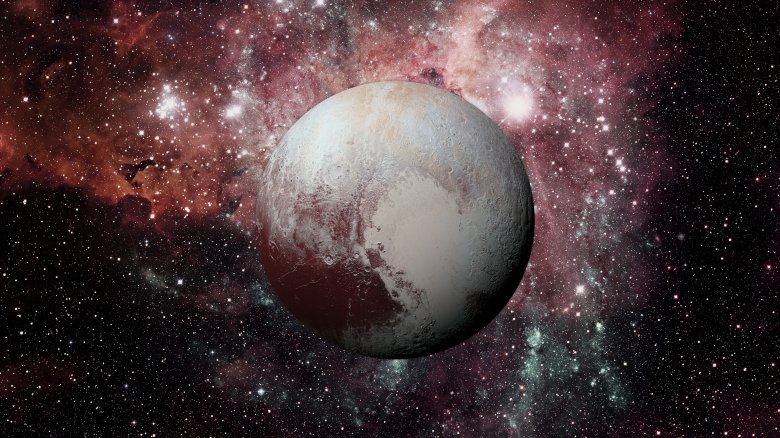The Real Reason Pluto Isn't A Planet Anymore
In 2006, Pluto's relationship status with our Solar System was officially downgraded from "Planet" to "It's complicated." Why? Turns out Pluto's fall from grace was the science of astronomy's version of "it's not you; it's me."
But let's take a step back in time to 1930 when this whole unfortunate mess started. It was a simpler time, and astronomy was a far more rudimentary science. As described on History.com, a young astronomer named Clyde Tombaugh discovered Pluto by comparing photographic plates of the night sky, a newfangled technique at the time. This new chunk of rock was orb-like, it revolved around the sun, and its existence could be definitively proven. This was enough for the (literally) starry-eyed science community at the time, the members of which excitedly announced the discovery of a new planet. Estimated to possess a decidedly crisp surface temperature of -360 degrees Fahrenheit, Tombaugh named the celestial after the Greek god of the underworld, Pluto. And just like that, a lonely chunk of space rock on the remote outskirts of our cosmic neighborhood had found a planetary family.
Flash forward to 1992. Our understanding of the universe, and the tools we had for measuring it, had advanced beyond our wildest dreams. As recounted in an article published in Space.com, scientists discovered another planet-like object in an orbit similar to Pluto's. Then there were more discoveries, with one celestial body even rivaling Pluto in size. The Solar System had become a more complicated place, and astronomers suddenly had a problem. Either all these distant objects were planets, or none of them were. Debate raged for over 15 years. What was a planet, exactly, astronomers asked? And if our current definition is wrong, what should we do about it?
In 2006, astronomy's relationship crisis with Pluto came to a head. At a tempestuous meeting of the International Astronomical Union in Prague, a majority of researchers voted for a new set of criteria for defining a planet. As described in National Geographic, the new guidelines stipulated that a planet must orbit the sun, be round in shape as a result of gravitational forces, and it must "dominate the neighborhood around its orbit" — which is a space-nerdy way of saying it has to have enough gravitational oomph to call the shots on its orbital path. Pluto fails to meet this third, new criteria.
Order was restored. Our solar system makes sense again (for now), with its eight neatly-defined planets. As far as planetary matters go, it was relatively minor in the grand scheme of things. It was certainly far less momentous than an ape uprising. Today, Pluto is given the amorphous astronomical friend zone status of "dwarf planet." As with any relationship bust up, there are winners and losers. Scientific clarity was the winner on this occasion. Poor freezing Pluto, regrettably, was the loser.
